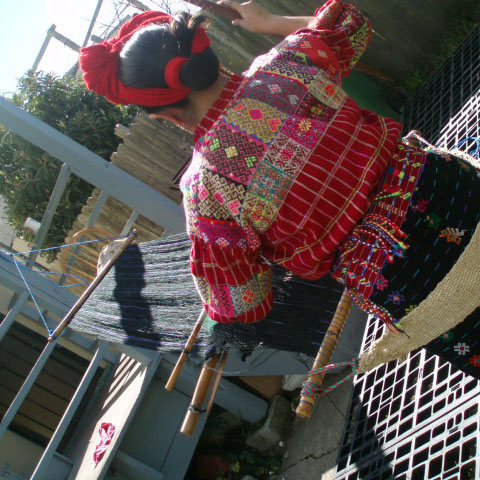Centro Legal de La Raza collaborated with weaver Martina Jimenez to create, document, and preserve Mayan loom working within the Oakland Workers’ Center (OWC)–which later evolved into the Oakland Workers’ Collective. At the Workers’ Center, Ms. Jimenez created and installed several full-size traditional Mayan textiles that celebrated and visually represented the cultural heritage of the hundreds of Mayan workers who organize within the Center. She created the weavings on site, inviting other Mayan weavers to join her.
During the 36-year-long civil war in Guatemala, the military tried to stop indigenous communities from practicing traditional arts—fearing that those who were fighting against them were using indigenous communities to support their cause. The Guatemalan military attacked and destroyed villages, killing hundreds of thousands of people and smashing weaving looms. They even studied huipil design patterns to tell which villages people came from.
Weaver Martina Jimenez was born into this context: the intricate techniques and patterns in her work have been passed on from mother to daughter as far back as anyone in her village can remember. Forced to flee Guatemala and live as a refugee in the United States, she has met other Guatemalan women wanting to preserve their traditions.
Her collaborating nonprofit, Centro Legal de La Raza, was a lead agency in the development of the OWC, a multi-industry worker center formed on behalf of low-income, limited English-speaking and immigrant workers. Ms. Jimenez was a member of OWC and one of the only female members of its day labor organizing committee.

